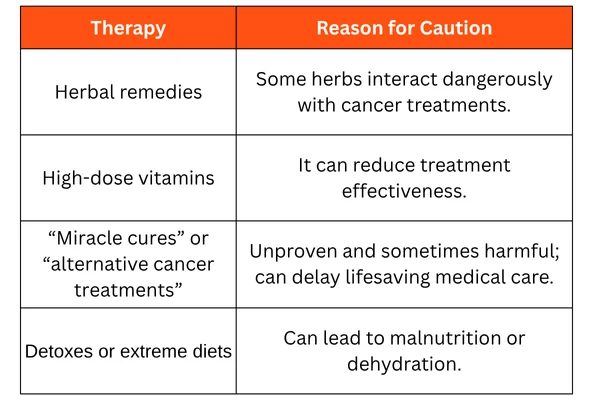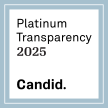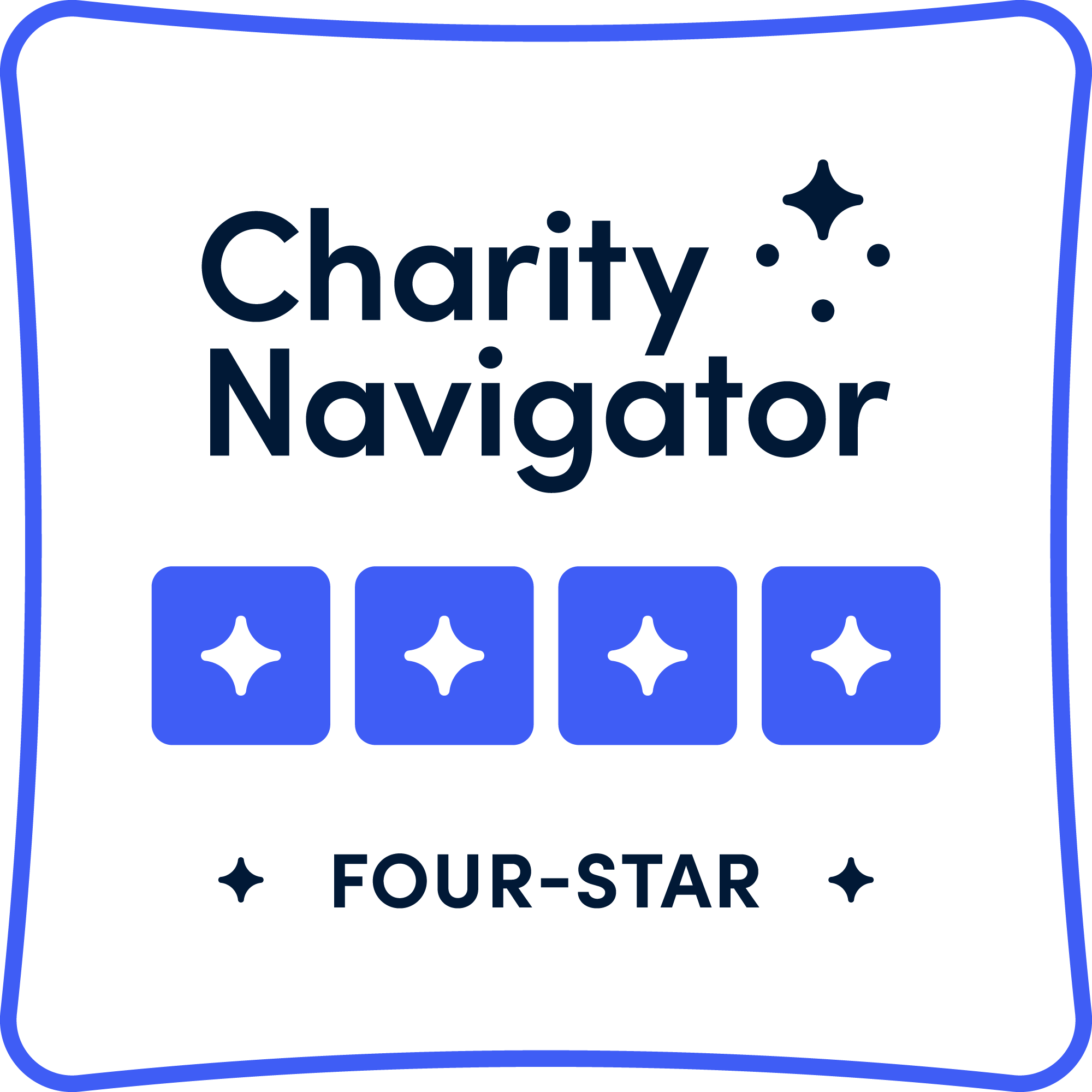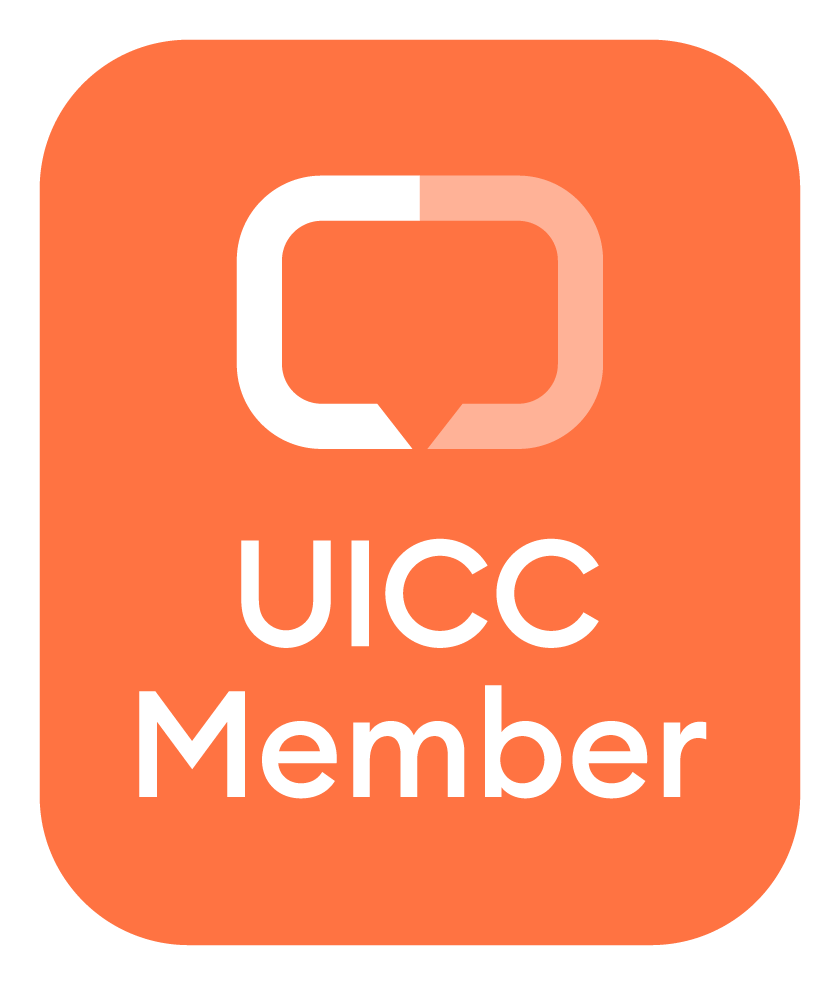Complementary and Integrative Therapies: What’s Safe and What’s Not

At the National Foundation for Cancer Research (NFCR), we recognize that many cancer patients seek complementary therapies to feel better, reduce side effects, and take an active role in their healing. When used safely alongside standard cancer treatments, these therapies can improve quality of life, but it’s important to know what is helpful and what could be harmful.
This guide provides an overview of popular complementary approaches and how to integrate them safely into your care.
What Are Complementary and Integrative Therapies?
- Complementary therapies are used with conventional medical treatments (like chemotherapy or surgery), not instead of them.
- Integrative care means combining the best of both conventional and complementary therapies in a safe, evidence-based way.
Important: Complementary therapies are not replacements for cancer treatment. Always talk with your oncologist before starting anything new.
Common Complementary Therapies — and Their Safety
-
Acupuncture
- What it is: Insertion of very thin needles into specific points on the body.
- Potential benefits: May help reduce pain, nausea, hot flashes, and neuropathy.
- Safety tips:
- Choose a licensed, experienced acupuncturist.
- Inform them about your cancer diagnosis and treatment.
- Avoid acupuncture if you have low blood counts or bleeding problems unless cleared by your doctor.
-
Meditation and Mindfulness
- What it is: Practices that focus the mind and calm the body, such as deep breathing, guided imagery, or mindful awareness.
- Potential benefits: Reduces anxiety, depression, pain, and stress.
- Safety tips:
- Meditation is generally very safe for everyone.
- Even 5–10 minutes a day can offer noticeable benefits.
-
Nutrition and Supplements
- What it is: Use of vitamins, herbs, or other dietary products to support health.
- Potential benefits: Good nutrition supports immune health and recovery.
- Safety warnings:
- Some supplements (like antioxidants) may interfere with chemotherapy or radiation.
- High-dose vitamins or herbal products can cause serious side effects or interactions.
- Always consult your doctor or an oncology dietitian before using any supplements.
-
Exercise Programs
- What it is: Tailored physical activity plans such as walking, yoga, strength training, or tai chi.
- Potential benefits: Improves energy, strength, mood, and recovery.
- Safety tips:
- Always start slowly and listen to your body.
- Get your doctor’s approval, especially if you have surgery wounds, bone metastases, or significant fatigue.

NFCR Tip: If a therapy claims to “cure cancer” without scientific evidence, it’s a red flag. Always check with your care team.
Questions to Ask Before Starting Any Complementary Therapy
- Has this therapy been studied in people with cancer?
- Will it interfere with my current treatments?
- Is it safe based on my medical condition?
- Who is providing the therapy, and are they qualified?
- What are the possible side effects?
NFCR’s Message to You
At NFCR, we believe that safe, informed choices help you live better during and after cancer treatment. Complementary therapies can be a powerful part of your healing journey when carefully chosen and coordinated with your medical care.
Remember:
- Complementary therapies support, but do not replace, cancer treatments.
- Always communicate openly with your care team about any therapies you want to try.
- Empower yourself with knowledge and stay focused on safe, evidence-based healing.
- You are not alone. NFCR is here to help you navigate every step of your care — with science, support, and hope.
Sign-up to Stay Informed About Cancer Research Breakthroughs with NFCR!
Continue the Series, Read Next: Nourishing Hope: How Nutrition Supports Cancer Treatment and Recovery >>>
A world without cancer is possible. Help us turn lab breakthroughs into life-saving realities.

5.7 Million+
Donors who have fueled NFCR’s mission

$420 Million+
Invested in high-impact research & programs

36+ Labs & Hundreds of
Nobel Laureates & Key Scientists received NFCR funding, driving breakthrough research












